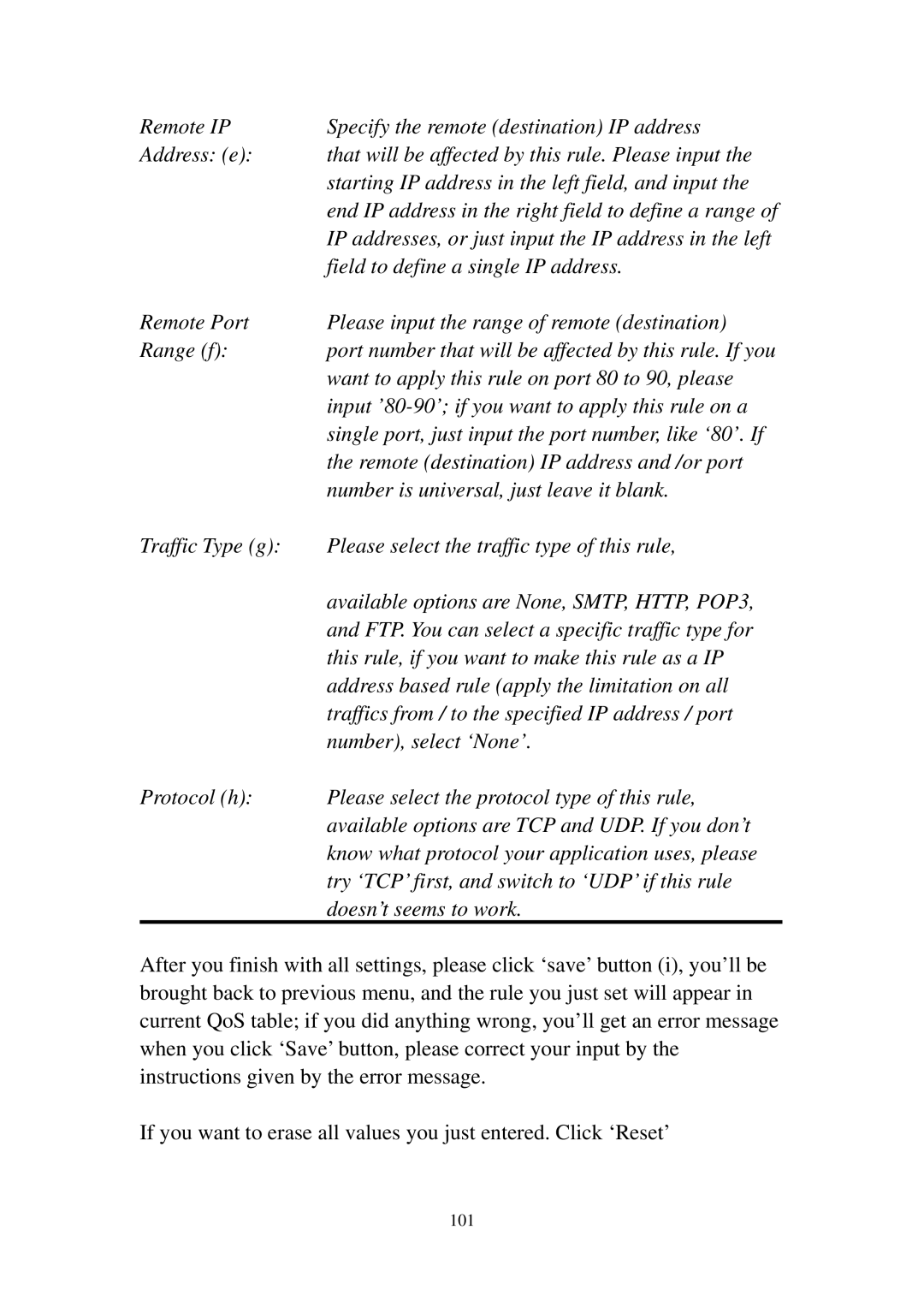Remote IP | Specify the remote (destination) IP address |
Address: (e): | that will be affected by this rule. Please input the |
| starting IP address in the left field, and input the |
| end IP address in the right field to define a range of |
| IP addresses, or just input the IP address in the left |
| field to define a single IP address. |
Remote Port | Please input the range of remote (destination) |
Range (f): | port number that will be affected by this rule. If you |
| want to apply this rule on port 80 to 90, please |
| input |
| single port, just input the port number, like ‘80’. If |
| the remote (destination) IP address and /or port |
| number is universal, just leave it blank. |
Traffic Type (g): | Please select the traffic type of this rule, |
| available options are None, SMTP, HTTP, POP3, |
| and FTP. You can select a specific traffic type for |
| this rule, if you want to make this rule as a IP |
| address based rule (apply the limitation on all |
| traffics from / to the specified IP address / port |
| number), select ‘None’. |
Protocol (h): | Please select the protocol type of this rule, |
| available options are TCP and UDP. If you don’t |
| know what protocol your application uses, please |
| try ‘TCP’ first, and switch to ‘UDP’ if this rule |
| doesn’t seems to work. |
After you finish with all settings, please click ‘save’ button (i), you’ll be brought back to previous menu, and the rule you just set will appear in current QoS table; if you did anything wrong, you’ll get an error message when you click ‘Save’ button, please correct your input by the instructions given by the error message.
If you want to erase all values you just entered. Click ‘Reset’
101
